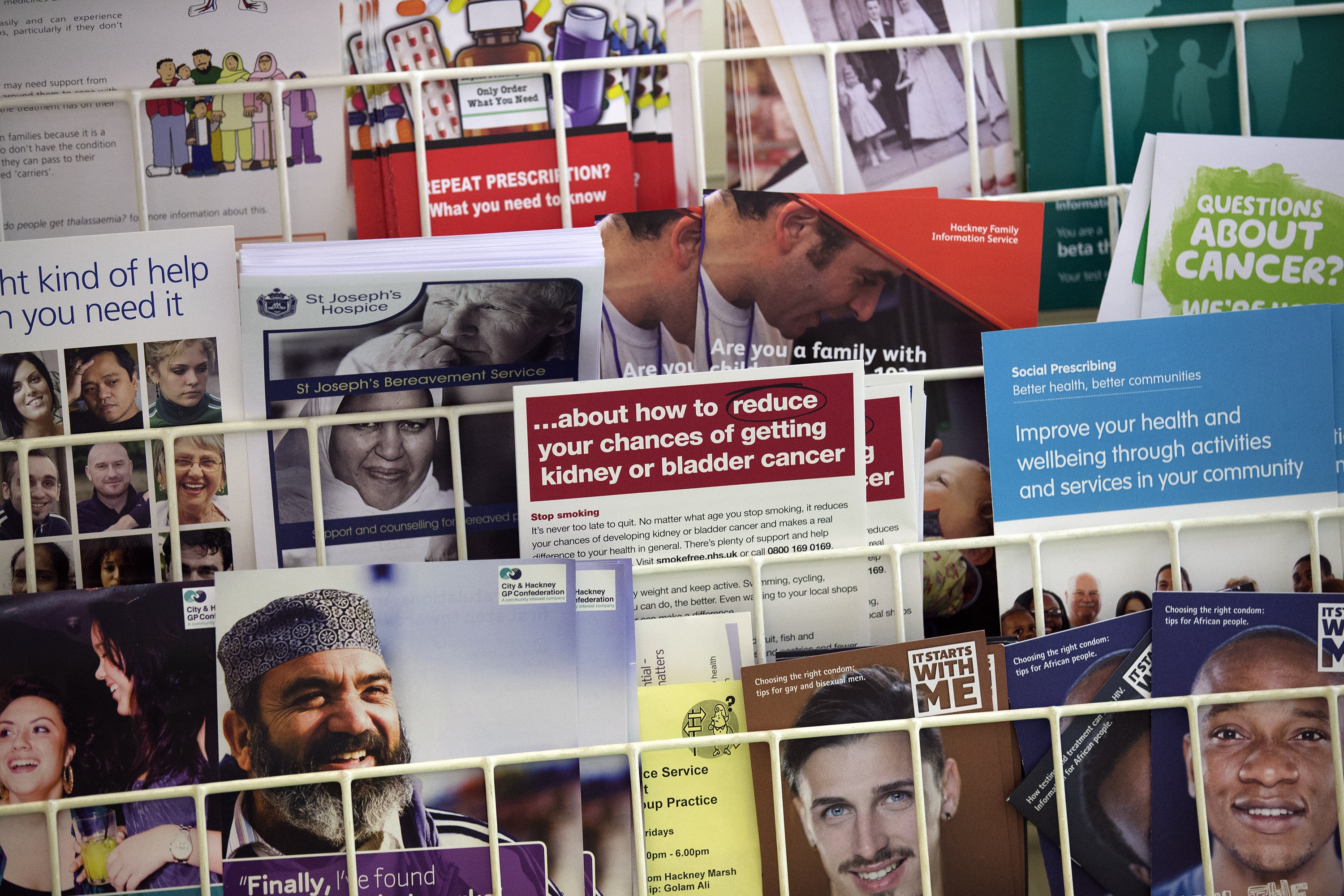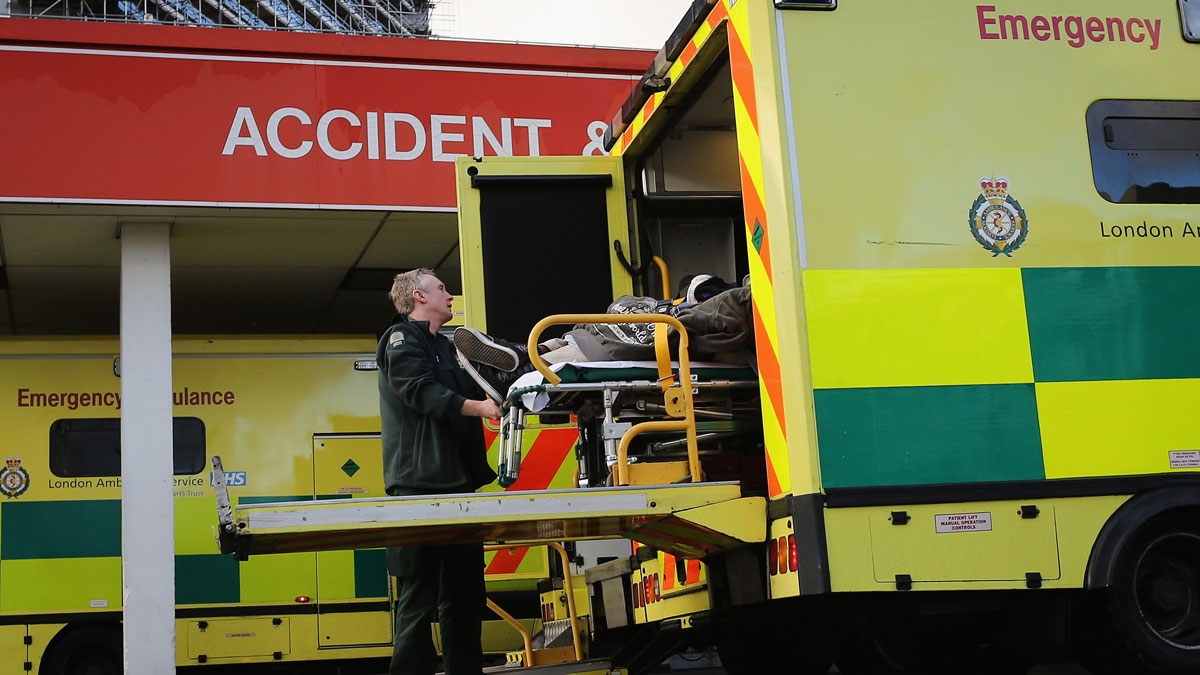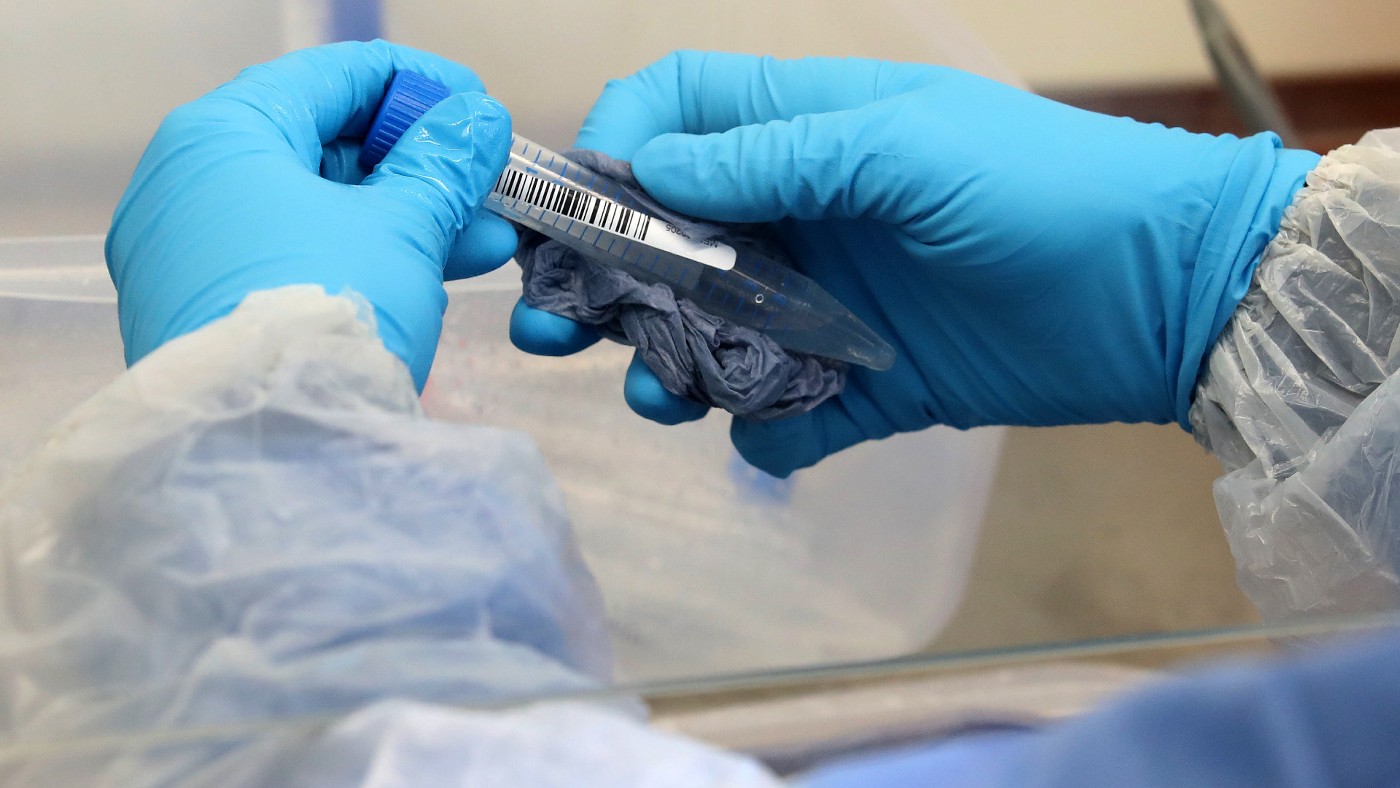How bad is the gender inequality gap in healthcare?
New report on women’s medical experiences provides ‘stark and sobering insights’

A free daily email with the biggest news stories of the day – and the best features from TheWeek.com
You are now subscribed
Your newsletter sign-up was successful
The government is aiming to “reset the dial on women’s health” and address entrenched problems within the healthcare system, from damaging stigmas to a lack of GP training on issues relating to the menopause.
The Department of Health and Social Care (DHSC)’s Vision for Women’s Health report was published today following analysis of almost 100,000 responses to a call for evidence, which gave “stark and sobering insights into women’s experiences of health and care”.
The report found that more than eight in ten women in Britain have felt as though they have not been listened to by healthcare professionals and that there is a general feeling that services for conditions that only affect women are of “lower priority” when compared with other services.
The Week
Escape your echo chamber. Get the facts behind the news, plus analysis from multiple perspectives.

Sign up for The Week's Free Newsletters
From our morning news briefing to a weekly Good News Newsletter, get the best of The Week delivered directly to your inbox.
From our morning news briefing to a weekly Good News Newsletter, get the best of The Week delivered directly to your inbox.
Nimco Ali, the government adviser and leading campaigner against female genital mutilation, said action was needed to address the UK’s “gender health gap”. Mika Simmons, host of The Happy Vagina podcast, called for a “seismic shift” to address women’s health care, which “has been side-lined for far too long”.
‘Decades of gender health inequality’
Writing for The Guardian, Alexandra Topping said that the gender inequality gap in healthcare starts “well before women make it to their doctor’s surgery”. Women are “routinely underrepresented in clinical trials”, she wrote, “and medical research proposed by women, for women, is not allotted the same funding as medical research proposed by men, for, you guessed it, men”.
The government has pledged to address what it described in a press release as “decades of gender health inequality”. One of the DHSC’s key commitments is the appointment of a women’s health ambassador who will “raise the profile of women’s health” and “increase awareness about taboo topics”.
A recognition of this blatant and historic sexism in healthcare, as well as the announcement that there will be a women’s health ambassador, is “welcome”, said Topping.
A free daily email with the biggest news stories of the day – and the best features from TheWeek.com
Menopause taskforce needed
Another government aim is to introduce a new UK-wide menopause taskforce – a move which “rides a wave of greater understanding of a condition that affects half the population but was, until very recently, taboo”, said Topping.
According to a survey of 32 UK medical schools by the not-for-profit organisation Menopause Support, almost half (41%) did not have a mandatory menopause education programme for their students, in spite of there being approximately 13 million perimenopausal or post-menopausal women in the UK.
Legislation will also be introduced “at the earliest opportunity” to ban hymenoplasty – a procedure undertaken to reconstruct a hymen – in a further drive to prevent violence against women and girls.
Ending stigma
In the press release, the DHSC said a major ambition of the Vision for Women’s Health is for all women to “feel comfortable talking about their health and no longer face taboos when they do talk about their health”.
According to a recent report by The Mail on Sunday, almost one million women have retired early because of the menopause – but discussing the issue in the workplace can often feel taboo.
“Six out of ten women tell us that the menopause has a significant impact on them from a work perspective and yet it’s just never talked about,” said Andy Briggs, the government’s business champion for older workers.
Hurdles ‘across every age group’
Senior NHS consultant Professor Geeta Nargund said that the results of the consultation showed “unequivocally” that the healthcare system needs more support for women’s reproductive health.
“Across every age group women face hurdles in accessing the medical care or information they need,” she added. Now the results are in, “we must work to address the issues raised and develop policies that will close the gender health gap”.
Kate Samuelson is The Week's former newsletter editor. She was also a regular guest on award-winning podcast The Week Unwrapped. Kate's career as a journalist began on the MailOnline graduate training scheme, which involved stints as a reporter at the South West News Service's office in Cambridge and the Liverpool Echo. She moved from MailOnline to Time magazine's satellite office in London, where she covered current affairs and culture for both the print mag and website. Before joining The Week, Kate worked at ActionAid UK, where she led the planning and delivery of all content gathering trips, from Bangladesh to Brazil. She is passionate about women's rights and using her skills as a journalist to highlight underrepresented communities. Alongside her staff roles, Kate has written for various magazines and newspapers including Stylist, Metro.co.uk, The Guardian and the i news site. She is also the founder and editor of Cheapskate London, an award-winning weekly newsletter that curates the best free events with the aim of making the capital more accessible.
-
 Kia EV4: a ‘terrifically comfy’ electric car
Kia EV4: a ‘terrifically comfy’ electric carThe Week Recommends The family-friendly vehicle has ‘plush seats’ and generous space
-
 Bonfire of the Murdochs: an ‘utterly gripping’ book
Bonfire of the Murdochs: an ‘utterly gripping’ bookThe Week Recommends Gabriel Sherman examines Rupert Murdoch’s ‘war of succession’ over his media empire
-
 Gwen John: Strange Beauties – a ‘superb’ retrospective
Gwen John: Strange Beauties – a ‘superb’ retrospectiveThe Week Recommends ‘Daunting’ show at the National Museum Cardiff plunges viewers into the Welsh artist’s ‘spiritual, austere existence’
-
 Non-Covid excess deaths: why are they rising?
Non-Covid excess deaths: why are they rising?In the Spotlight Experts call for probe as mortality rates in England and Wales climb despite drop in coronavirus deaths
-
 The rise in children’s hepatitis
The rise in children’s hepatitisIn the Spotlight Surge in cases has been linked to lockdown restrictions
-
 The true Covid-19 global death toll
The true Covid-19 global death tollIn the Spotlight Pandemic may have claimed three times as many lives as previously thought
-
 What the pandemic is doing to our brains
What the pandemic is doing to our brainsIn the Spotlight Scientists want to explore whether the stress of Covid-19 has changed people’s cognitive function
-
 The end of home abortions
The end of home abortionsIn the Spotlight ‘Pill by post’ legislation had been introduced in March 2020 in response to pandemic
-
 Will lateral flow tests end up on the black market?
Will lateral flow tests end up on the black market?In the Spotlight Announcement that free tests will end triggers stockpiling from pharmacies
-
 The plan to scrap the UK’s ONS Covid survey
The plan to scrap the UK’s ONS Covid surveyIn the Spotlight Experts suggest ‘world’s best surveillance system’ could protect against future pandemics
-
 How MMR vaccine rates in England fell to a ten-year low
How MMR vaccine rates in England fell to a ten-year lowIn the Spotlight Health officials say more than one in ten children starting school at risk of measles